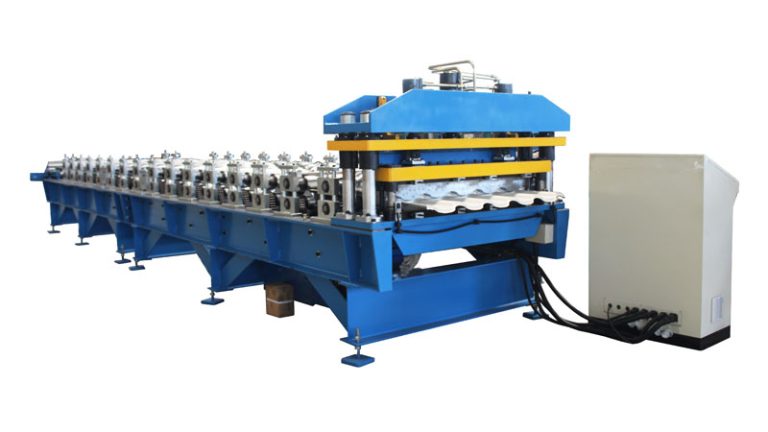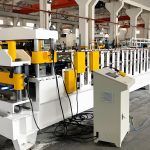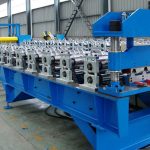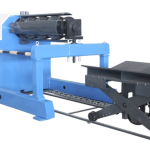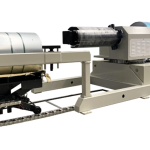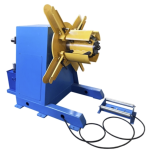Overview of the High Speed Roofing Tile Making Machine
The high speed roofing tile making machine is a cornerstone of modern manufacturing, designed to produce a diverse array of metal sheet profiles for roofing and wall systems in construction. This advanced roll forming equipment is capable of crafting profiles such as trapezoidal panels, corrugated panels, roof tile panels, metal deck panels, standing seam panels, K span panels, and ridge caps, catering to both workshop and housing construction needs. Its versatility stems from its ability to process materials with thicknesses ranging from 0.2 mm to 0.8 mm, with Gauge 26 (0.45-0.5 mm) being a globally preferred standard. Compatible raw materials include aluminum, pre-painted galvanized iron (PPGI), galvanized steel, and galvalume steel, offering flexibility for various environmental and structural demands. The machine’s configuration is tailored to customer specifications, particularly the pitch and height of each wave, ensuring precise alignment with design drawings. A standout feature is its advanced cut and press system, which delivers aesthetically pleasing pitches and maintains length precision within +/- 0.5 mm, as demonstrated in exports to the USA. This precision, combined with a streamlined production line—decoiler, roll former, hydraulic cut, wastage collector, and out table—positions the machine as a high-performance solution for producing durable, functional roofing tiles.
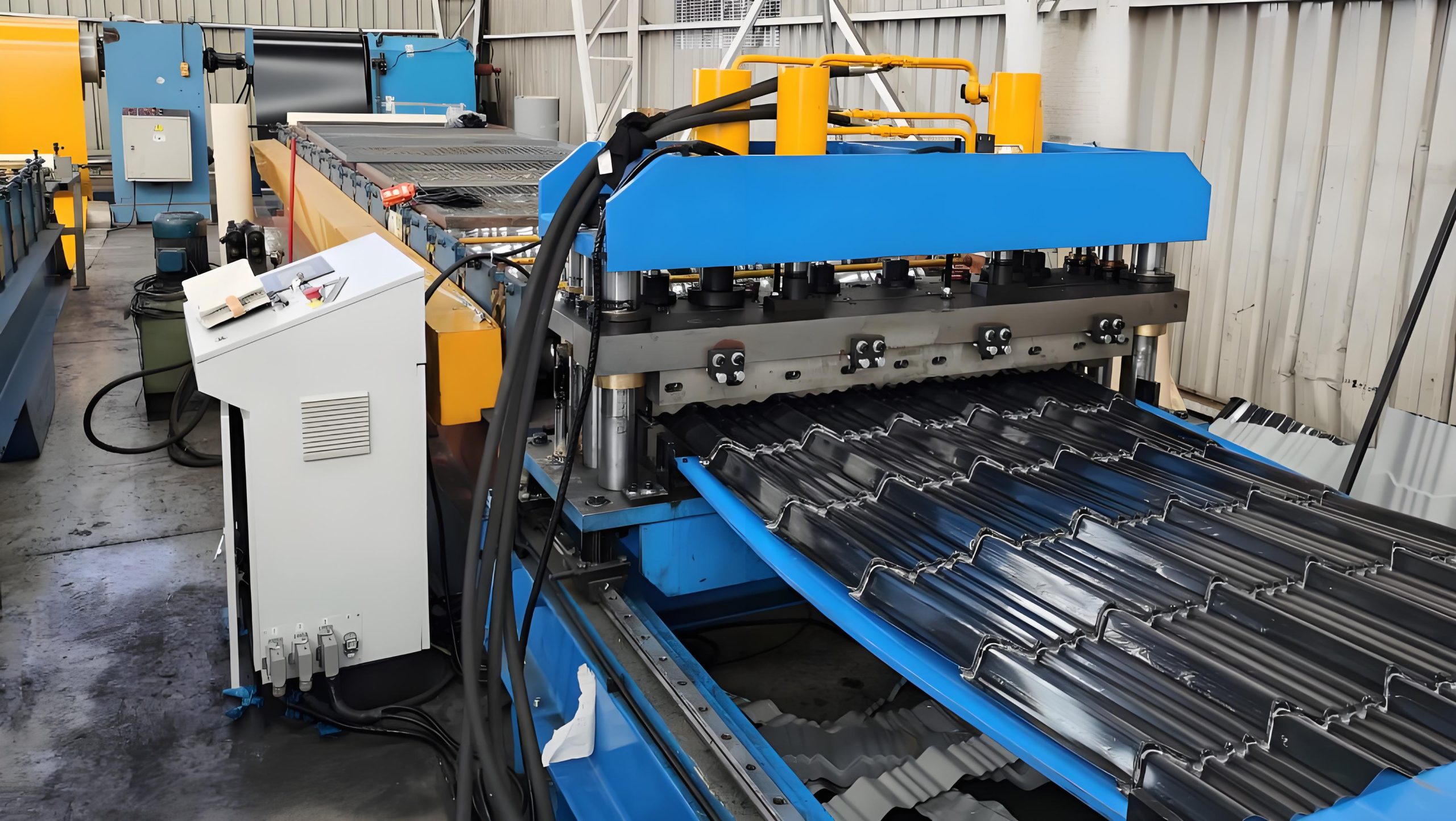
Material Compatibility and Structural Integrity
Material selection is a critical factor in the performance of the high speed roofing tile making machine, as it directly impacts the strength, durability, and corrosion resistance of the resulting profiles. The machine is engineered to handle galvanized coils, PPGI, and carbon steel coils, with a machinable thickness range of 0.3 to 0.8 mm. These materials exhibit yield strengths of 250 to 550 MPa and tensile stresses of 350 to 550 MPa, accommodating a spectrum of applications from lightweight residential roofing to robust industrial panels. Galvanized and galvalume steels provide excellent corrosion resistance, ideal for harsh climates, while PPGI adds aesthetic appeal with pre-painted finishes. The rollers, constructed from Steel #45 or GCr15, are precision-machined to ensure uniform forming without deforming the material. The machine’s structure—available as wall panel, forged iron, or torri stand—offers varying levels of stability and durability. Wall panel stations are cost-effective and rigid, suitable for standard operations, while forged iron stations excel in heavy-duty scenarios due to their superior strength. This adaptability in material processing and structural design allows the machine to produce high-quality roofing tiles that meet stringent industry standards, balancing functionality with longevity in diverse construction contexts.
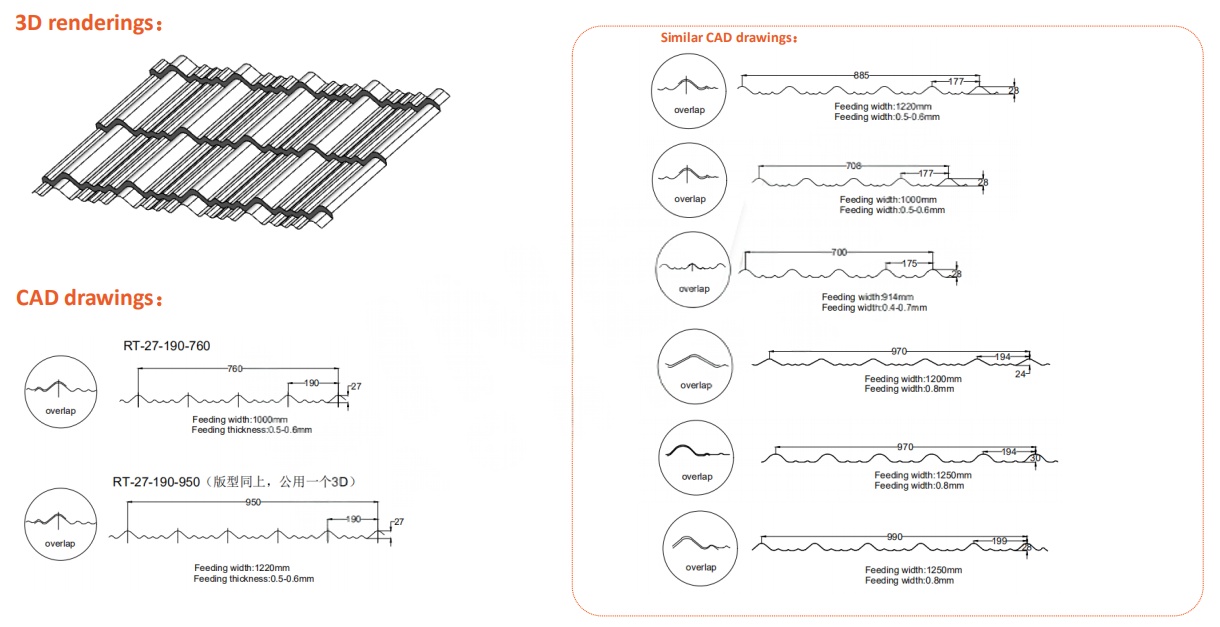
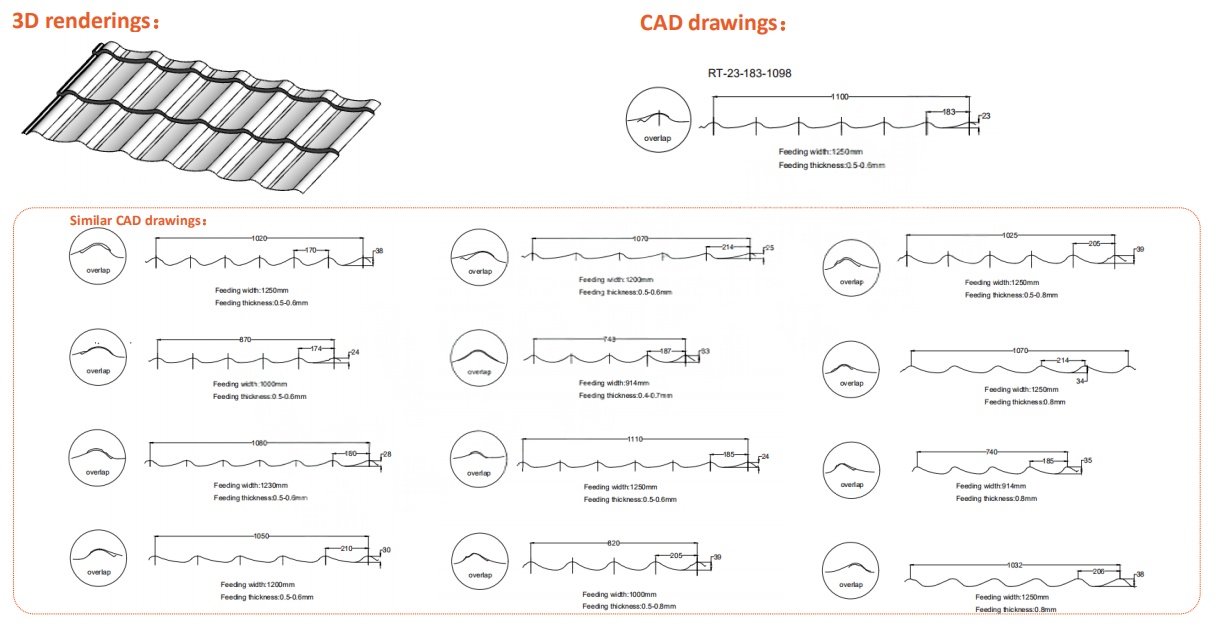
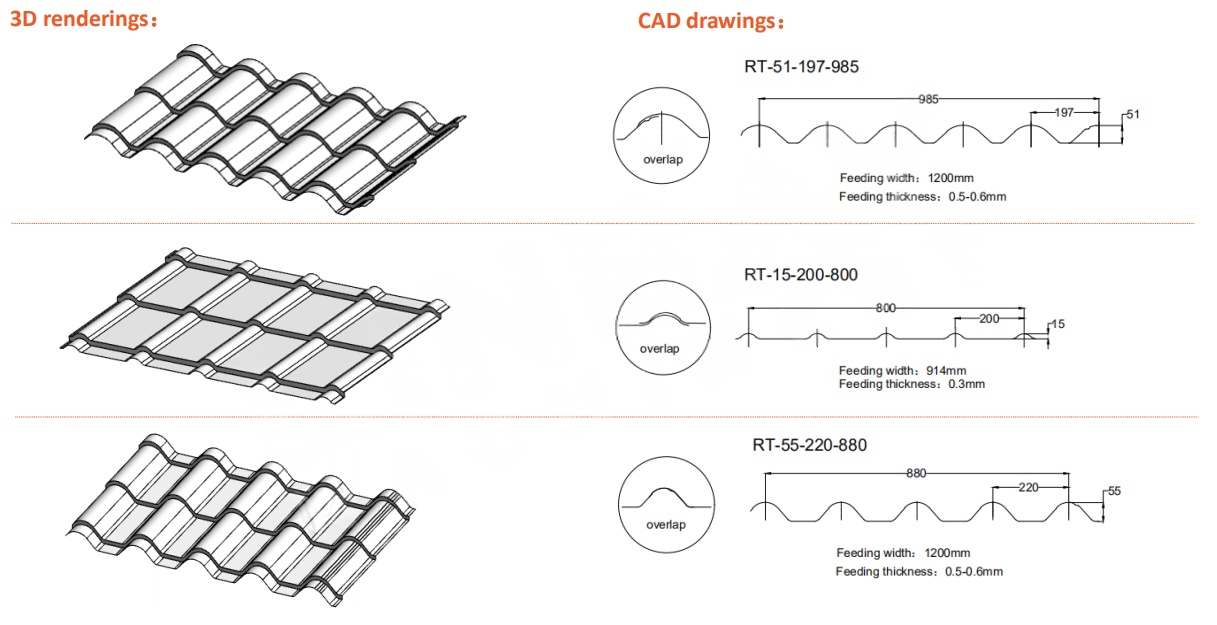
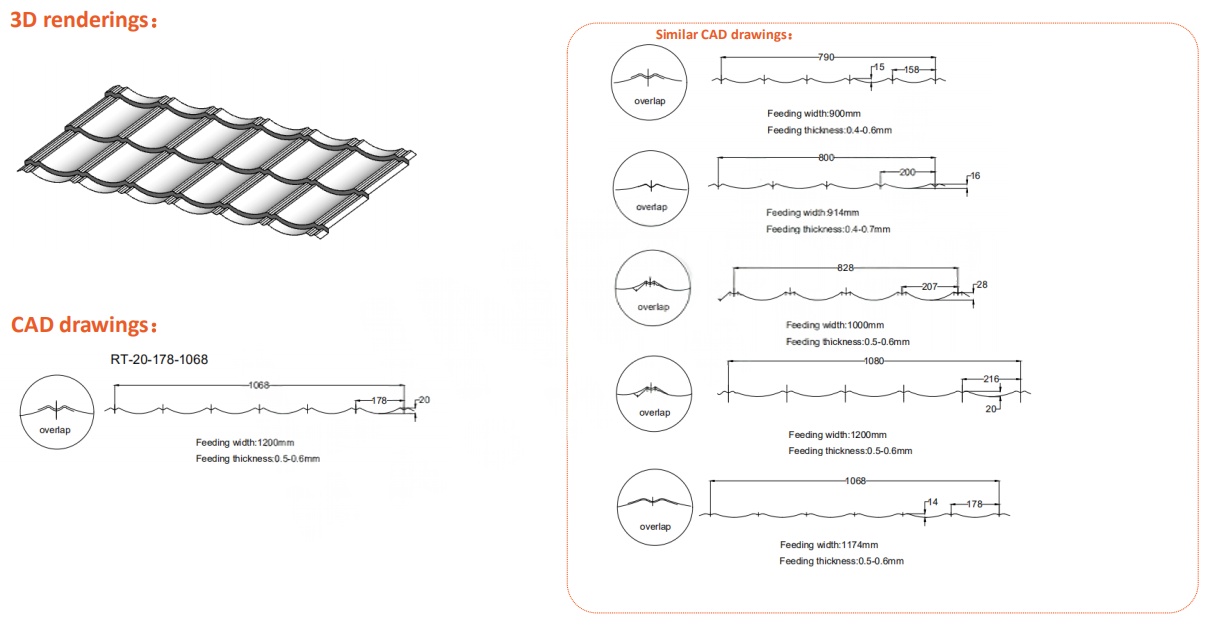
Operational Mechanics and Performance Efficiency
The high speed roofing tile making machine achieves exceptional performance through its sophisticated operational mechanics. It typically features 22 forming stations, adjustable based on profile complexity, which progressively shape the metal coil into precise roofing tile designs. The nominal forming speed ranges from 0 to 20 meters per minute, customizable to suit material thickness, profile intricacy, and production goals. The driving system, available as a chain drive or gearbox drive, significantly influences efficiency. Chain drives are simpler and cost-effective for standard tasks, while gearbox drives provide enhanced precision and durability for high-speed, high-volume production. The main machine motor, often a Sino-German brand or Siemens, delivers reliable power for consistent operation. Control is facilitated by a PLC system from Panasonic or Siemens, enabling precise adjustments to speed, cutting, and forming parameters. The frequency changer, typically Yaskawa or Siemens, optimizes motor speed for energy efficiency and accuracy. The cutting system, often hydraulic and post-cutting, ensures clean, precise cuts, with pre-cutting as an option for specific needs. This integration of advanced components and customizable settings allows the machine to deliver high throughput, repeatability, and quality, meeting the demands of modern roofing tile production.

Technical Specifications and Customization Options
The following table details the key technical specifications and optional features of the high speed roofing tile making machine, highlighting its adaptability to diverse needs:
| Item | Specification | Optional |
|---|---|---|
| Machinable Material | A) Galvanized Coil B) PPGI C) Carbon Steel Coil Thickness (MM): 0.3-0.8 |
|
| Yield Strength | 250 – 550 MPa | |
| Tensile Stress | 350 MPa – 550 MPa | |
| Nominal Forming Speed (M/MIN) | 0-20 | Or according to your requirement |
| Forming Station | 22 stands | According to your profile drawings |
| Decoiler | Manual decoiler | Hydraulic decoiler or double head decoiler |
| Punching System | No | Hydraulic punching or punching press |
| Main Machine Motor Brand | Sino-Germany Brand | Siemens |
| Driving System | Chain drive | Gearbox drive |
| Machine Structure | Wall panel station | Forged Iron station or torri stand structure |
| Rollers’ Material | Steel #45 | GCr15 |
| Cutting System | Post-cutting | Pre-cutting |
| Frequency Changer Brand | Yaskawa | Siemens |
| PLC Brand | Panasonic | Siemens |
| Power Supply | 380V 50Hz | Or according to your requirement |
| Machine Color | Industrial blue | Or according to your requirement |
This table emphasizes the machine’s customization potential, from decoiler types and motor brands to drive systems and colors. For instance, a hydraulic decoiler boosts efficiency for large coils, while a gearbox drive enhances precision for complex profiles, ensuring adaptability to varied production environments.
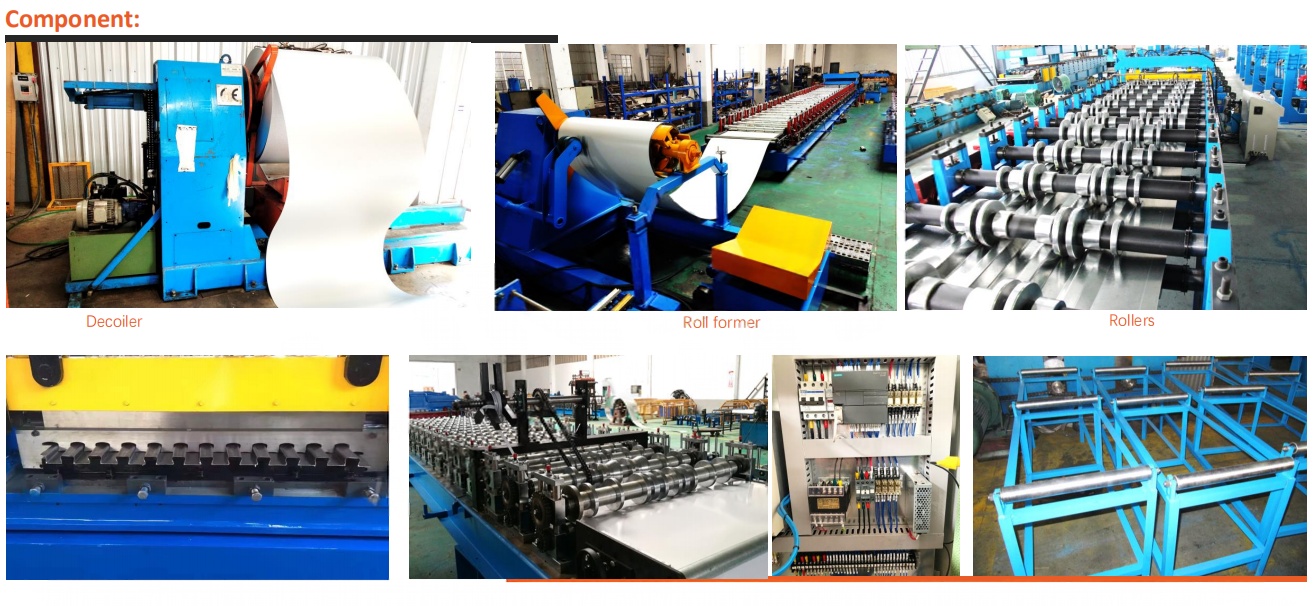
Applications and Future Prospects
The high speed roofing tile making machine is a vital asset in the construction industry, producing a wide range of profiles—trapezoidal, corrugated, roof tile, metal deck, standing seam, K span, and ridge cap—for roofing and wall systems. Its ability to deliver precise, high-quality tiles with length accuracy within +/- 0.5 mm makes it ideal for both workshop and housing projects. The machine’s efficiency, driven by adjustable forming speeds, advanced PLC control, and a robust hydraulic cutting system, minimizes waste and ensures consistent output. Scientifically, its design optimizes stress distribution during forming, reducing defects like warping or cracking, critical for durable roofing solutions. Looking ahead, advancements may include smart sensors and IoT integration for real-time monitoring, predictive maintenance, and enhanced automation. Improvements in roller materials, such as advanced coatings, could extend durability and handle higher-strength materials. With energy-efficient motors and frequency changers, the machine aligns with sustainability trends, reducing environmental impact. Its adaptability to custom drawings, tolerances, and budgets positions it as a future-ready tool, driving innovation in construction and meeting evolving industry demands.





